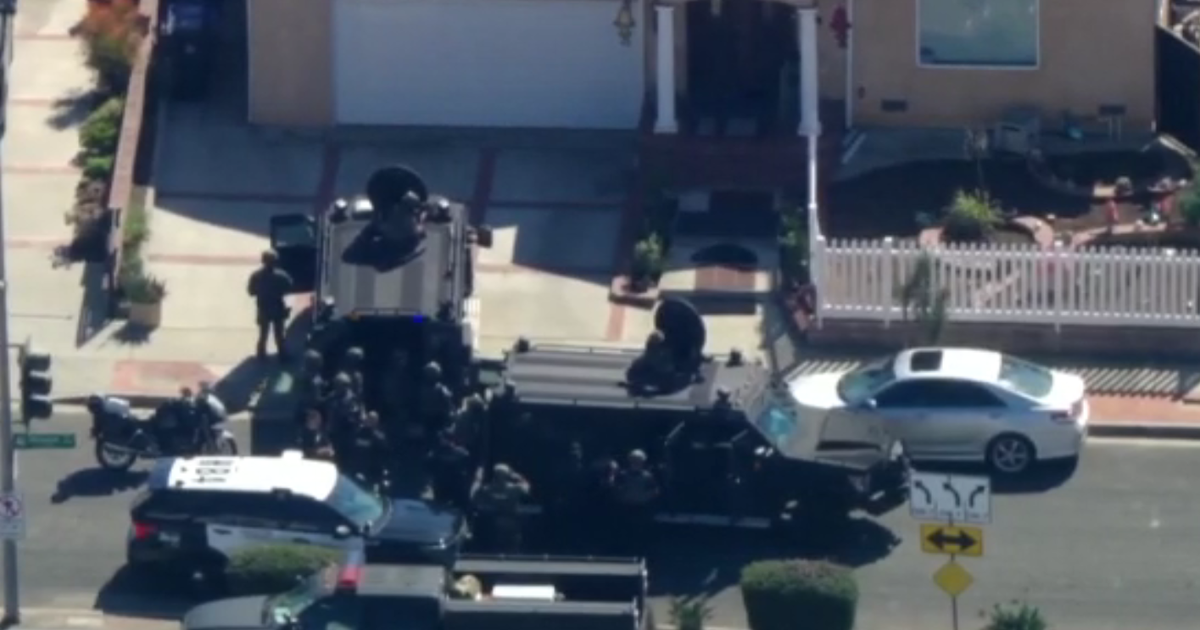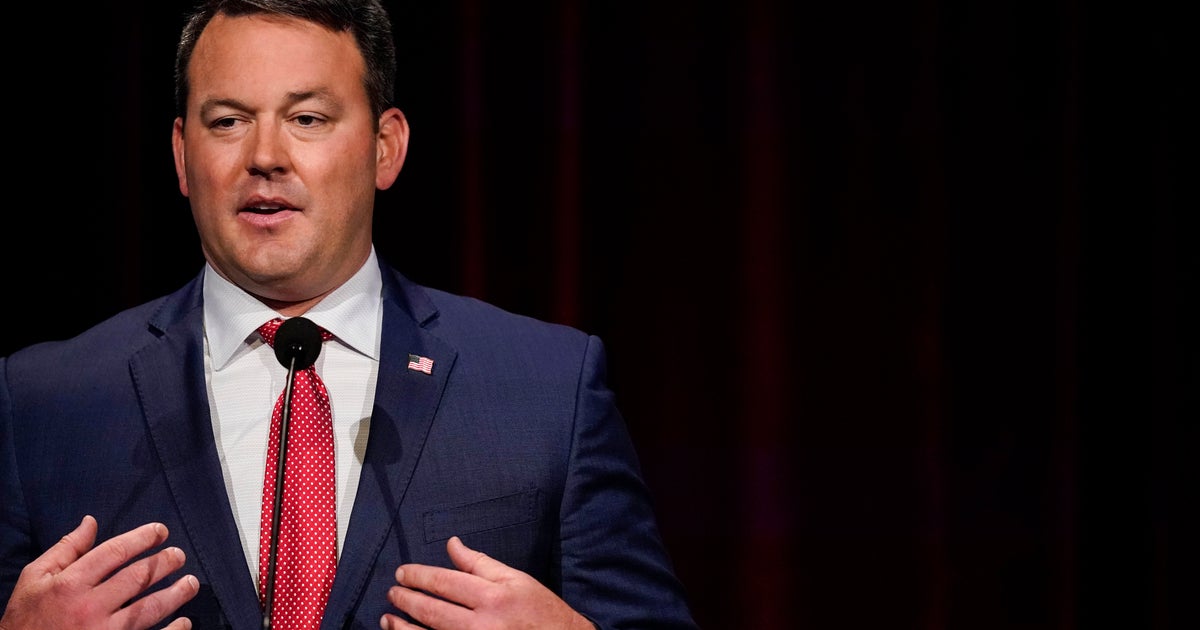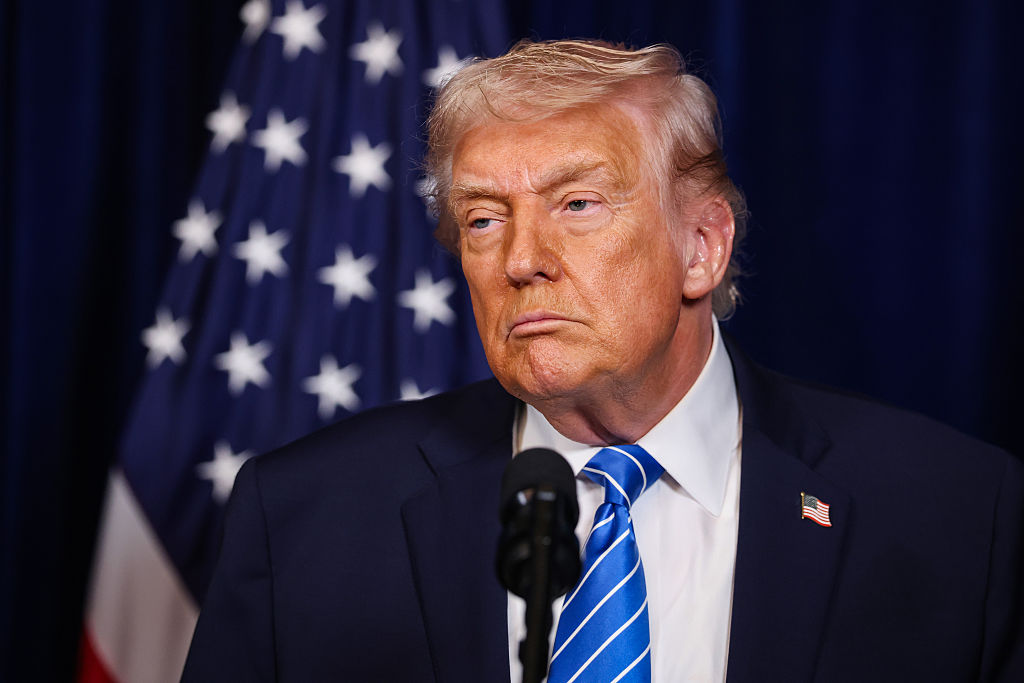Florida denies Amendment 4 advocate Desmond Meade full pardon
As someone who had committed felonies in Florida, Desmond Meade waited almost three decades to vote. But to have his civil rights completely restored, he will have to wait a little longer.
Florida's Republican Gov. Ron DeSantis and the state clemency board on Wednesday declined to grant a full pardon to Meade. An influential civil rights activist, Meade spearheaded Florida's historic Amendment 4, which restores voting rights to felons who complete their sentences. Re-enfranchising as many as 1.4 million Floridians, the 2018 amendment was the single largest addition to the country's voting population in half a century.
DeSantis said the clemency board would take Meade's request "under advisement." The governor said he had questions over a court-martial for grand larceny that resulted in Meade being dishonorably discharged from the Army in 1990. He advised Meade to clear up his military conviction before seeking a full pardon from the state.
State Chief Financial Officer Jimmy Patronis, a Republican who sits on the clemency board, questioned a previous domestic violence conviction and said he wanted to know if Meade's ex-wife had forgiven him for the incident before Patronis could grant a full pardon.
Although the board deferred both Meade's request for pardon and his restoration of civil rights, they told him he could ask again. It was Meade's first appearance before the board.
"It was important for me to seek a pardon because when you think about the typical reasons for granting a pardon is based around a person's work after they have completed their sentence, after they had committed their last offense," Meade told 60 Minutes. "Really it's a sense of extending grace to an individual that have made significant contribution to their community. And I felt that the work that I've done over the years really warranted me actually getting a pardon."
THE DEBATE OVER CLEMENCY IN FLORIDA
In Florida's clemency process, the governor and two cabinet members need to agree in order to restore the civil rights of convicted felons. The governor has the sole power to deny clemency, according to the Florida Commission on Offender Review.
Florida's Secretary of Agriculture Nikki Fried, a Democrat who sits on the clemency board, supported Meade's request for a full pardon. In a statement following Wednesday's hearing, Fried called Meade "a Floridian whose redemption should be an example to us all – proving that we judge people only by their worst days."
She went on to criticize more broadly the clemency process under DeSantis, calling it "an absolute mockery." Fried noted that that in nearly two years of DeSantis's administration, only 30 Floridians have earned back their rights. The governor's three predecessors, all of whom were Republican, granted clemency to some 234,000 Floridians combined.
"Florida's broken Clemency system is restrictive, arbitrary, and designed to fail our citizens seeking a fresh start," Fried wrote.
A spokesperson for the Florida Commission on Offender Review confirmed that previous clemency hearings this year had been postponed because of the coronavirus pandemic.
Rep. Charlie Crist, a Democrat, was a Republican when he served as governor of Florida. His administration granted clemency to more than 150,000 people during his four-year term. In December, he wrote an op-ed in the Sun-Sentinel calling on DeSantis's administration to modify the state's clemency rules. He noted that Republican Gov. Rick Scott, DeSantis's immediate predecessor, had changed the rules and made the clemency process much more restrictive.
As Crist explained, the board now has discretion to deny clemency for any reason, mandates that applicants wait at least five years before starting the process, and are given just five minutes to speak in a hearing.
"Right now, more than 10,000 applicants continue waiting for their voice to be heard and their rights to be restored," Crist wrote. "Change is needed now, justice delayed is justice denied. This can no longer be about politics or partisanship. It's about humanity, decency, and the Golden Rule: do unto others as we'd have done unto us."
Prior to Amendment 4, clemency was the only way to restore voting to Floridians with previous felony convictions. A federal judge had declared the process unconstitutional — but it remains the only way to restore full civil rights.
"In Florida, elected, partisan officials have extraordinary authority to grant or withhold the right to vote from hundreds of thousands of people without any constraints, guidelines or standards," U.S. District Judge Mark E. Walker wrote in a 2018 ruling. "The question now is whether such a system passes constitutional muster. It does not."
Requests for comment from DeSantis' office went unreturned.
"BETTERED THE LIVES OF COUNTLESS PEOPLE"
Previously convicted of drug and firearm possession, Meade was homeless and suicidal following his release from prison in 2004. But he soon turned his life around. He entered a drug treatment program, moved into a homeless shelter, and graduated from Miami-Dade College. A few years later, he earned his law degree. He became president of the Florida Rights Restoration Coalition and spearheaded the effort to restore the vote to Floridians with felonies. He would go on to be named one of Time's 100 Most Influential People in 2019.
Using his law school training, Meade helped write Amendment 4. The amendment allows Floridians, except those convicted of murder or felony sexual assault, to register to vote as soon as they serve out a felony sentence, including probation and parole. The amendment passed in 2018 after more than 5 million Floridians voted for the initiative — nearly two-thirds of the vote.
In an interview with 60 Minutes correspondent Lesley Stahl, Meade said the process of advocating for Amendment 4 strengthened his respect for voting.
"So many people I've ran across that told me that one of their bigger fears was to die before getting to see what it feels like to be in American citizen again," he said. "There's something sacred about that, that transcends all of this rhetoric that's going on today and all of this infighting. There's something sacred about a person feeling like they're part of society, like they're a human being, like their voice matters."
However, a few months after voters passed the amendment, the state's Republican legislature passed a bill clarifying it. The new law stipulates that completing a felony sentence first requires paying all sentence-related court fines, fees, and restitution. As a result, of the estimated 1.4 million felons who regained the right to vote, 774,000 thousand soon lost the right because of debt.
A restoration of an individual's civil rights through the state's clemency program would restore the right to vote automatically, regardless of a felon's financial penalties.
Desmond Meade had previously regained voting access through Amendment 4. He was seeking a full pardon to restore all his civil rights, such as the rights to possess a firearm, serve on a jury, and sit for Florida's bar exam. Although he has a law degree from Florida International University's College of Law, without sitting for the bar, he is unable to practice law in the state.
State Attorney Katherine Fernandez Rundle on Monday sent a letter to the clemency board to praise Meade's contributions to society. "Based on the foregoing, it is our considered opinion that Mr. Meade has turned his life around; impacted our community, state, and nation in a truly significant and unique way; and bettered the lives of countless people," the letter read, according to the Tampa Bay Times.
The board on Wednesday did restore civil rights to Neil Volz, who works with Meade as the deputy director of the Florida Rights Restoration Coalition. Volz had been convicted of conspiring to bribe members of Congress as part of the 2006 Jack Abramoff lobbying scandal.
Meade told 60 Minutes the deferral of his pardon this week motivates him to continue.
"This experience serves as a catalyst," he said. "It strengthens our resolve to continue to do the work that we're doing, fighting for every one of the 1.4 million Floridians that have benefited from Amendment 4, and making sure that we're doing everything within our power to give them an opportunity, if they so desire, to participate in our democracy and change the direction that our state in this country is going."
To watch Lesley Stahl's 60 Minutes report on Amendment 4, click here.
The video at the top of the page was produced by Brit McCandless Farmer and Will Croxton, who edited both videos.



